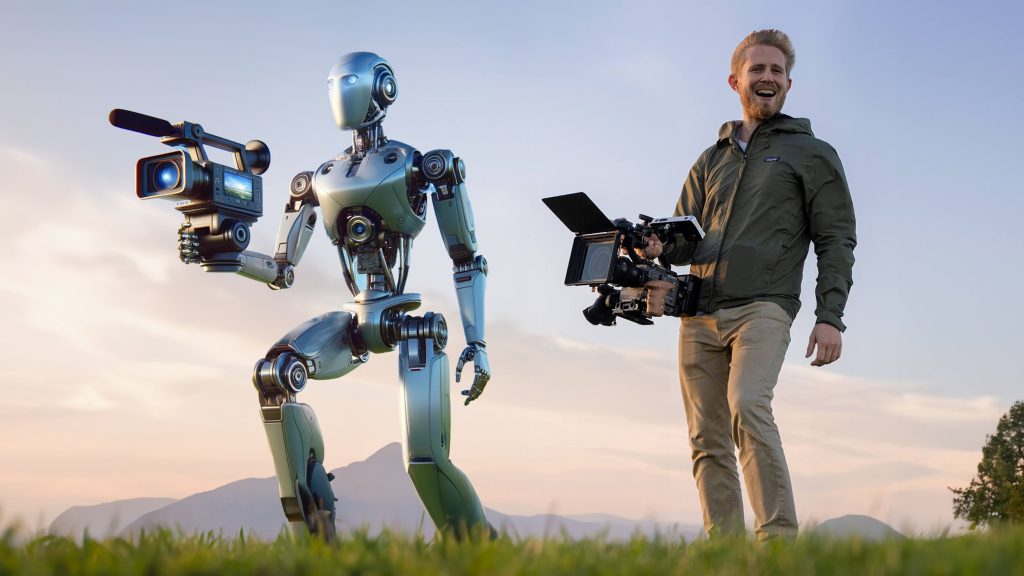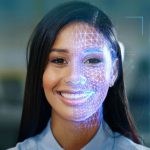Filmmaking has always been about storytelling, creativity, and innovation. Over the years, technological advancements have transformed the industry—from silent films to CGI spectacles. Today, Artificial Intelligence (AI) is taking filmmaking to a whole new level, revolutionizing everything from scriptwriting to editing, special effects, and audience predictions.
In this article, we’ll explore how AI is reshaping the film industry, making movie production faster, smarter, and more immersive than ever.
1. AI in Scriptwriting & Storytelling 📝🤖
Writing a compelling screenplay is one of the most challenging aspects of filmmaking. AI is now assisting screenwriters by analyzing vast amounts of scripts, suggesting plot structures, and even generating dialogue.
🔹 AI-Powered Scriptwriting Tools
✍️ SudoWrite & ChatGPT – Generate dialogue and plot ideas.
📖 AI Dungeon – Interactive storytelling powered by machine learning.
📊 ScriptBook – Predicts a script’s success based on data analysis.
📍 Example: In 2016, IBM’s AI wrote the short film “Sunspring”, showcasing how AI can create unique narratives based on existing scripts.
Will AI replace human writers? Not yet. AI assists with brainstorming but lacks the human touch that makes storytelling deeply emotional and relatable.
2. AI in Pre-Production & Planning 🎬📋
Pre-production involves budgeting, scheduling, and location scouting—tasks that AI is making more efficient and cost-effective.
🔹 How AI Helps in Pre-Production:
✅ Budget Optimization – AI predicts production costs and finds ways to cut expenses.
✅ Casting Decisions – AI analyzes audience preferences to suggest actors.
✅ Location Scouting – AI-powered tools analyze visual databases to find the perfect filming locations.
📍 Example: Netflix uses AI to analyze actor popularity and predict how their casting affects a movie’s success.
3. AI in Filming & Cinematography 🎥📡
AI-driven cameras and robotic systems are changing how movies are shot, making cinematography more precise, creative, and dynamic.
🔹 AI-Powered Filmmaking Technologies
🎥 AI-Driven Cameras – Adjust focus, angles, and lighting automatically.
🤖 Robotic Camera Operators – Like the Bolt Cinebot, which captures high-speed action sequences with extreme precision.
🎞️ AI-Powered Drone Cinematography – AI-controlled drones track moving subjects flawlessly.
📍 Example: In “Gravity” (2013), AI-driven robotic cameras helped create realistic zero-gravity scenes, revolutionizing space cinematography.
4. AI in Visual Effects (VFX) & CGI 🌟🎞️
The rise of AI has transformed special effects, making CGI more realistic and reducing post-production time.
🔹 AI’s Role in VFX & CGI:
✅ Deepfake Technology – AI recreates faces and voices with stunning accuracy.
✅ AI-Generated Digital Humans – Hyper-realistic digital characters powered by AI.
✅ Smart De-Aging & Face Replacement – Used in movies like The Irishman (2019) to make actors appear younger.
📍 Example: AI was used in Star Wars: Rogue One to digitally recreate Carrie Fisher’s Princess Leia.
5. AI in Post-Production & Editing 🎞️✂️
Editing is one of the most time-consuming parts of filmmaking. AI automates tedious editing tasks, allowing editors to focus on creativity.
🔹 AI-Powered Editing Tools
🎬 Adobe Sensei – AI-assisted editing that suggests cuts and color corrections.
🔍 Magisto – Automatically creates short films from raw footage.
🎵 AI in Sound Editing – AI removes background noise and improves dialogue clarity.
📍 Example: AI was used in Avengers: Endgame to automatically edit and enhance battle scenes for greater impact.
6. AI in Film Distribution & Marketing 🎟️📈
Hollywood spends millions on marketing, but AI is making targeted advertising more effective by analyzing audience preferences.
🔹 AI in Movie Promotion:
✅ Trailer Creation – AI selects the best clips for movie trailers.
✅ Audience Targeting – AI predicts which demographics will enjoy a film.
✅ Box Office Predictions – AI analyzes social media trends to estimate a movie’s success.
📍 Example: IBM’s AI created the trailer for the horror movie Morgan (2016), proving that AI can curate suspenseful scenes effectively.
7. AI in Audience Experience & Personalization 🍿🤖
Streaming platforms like Netflix and Disney+ use AI to personalize recommendations, ensuring viewers get content tailored to their tastes.
🔹 AI-Driven Personalization Features
📺 Recommendation Engines – AI suggests movies based on viewing history.
🎭 Dynamic Content Adaptation – AI customizes subtitles and dubbing.
🎮 Interactive AI-Powered Films – Viewers can influence a film’s storyline (Black Mirror: Bandersnatch).
📍 Example: Netflix’s AI predicts what users will binge-watch next based on data from millions of viewers.
8. The Future of AI in Filmmaking 🚀🎬
The film industry is heading toward a future where AI and human creativity coexist. Here’s what we can expect:
🔹 Fully AI-Generated Films – AI could one day write, shoot, and edit entire movies.
🔹 AI-Powered Virtual Actors – Hyper-realistic AI-generated actors replacing real ones.
🔹 Real-Time AI-Driven Special Effects – No need for green screens—AI will create realistic backgrounds in real-time.
Conclusion 🏆🎥
AI is reshaping the film industry, making production faster, smarter, and more efficient. While human creativity remains irreplaceable, AI enhances every aspect of filmmaking, from scriptwriting and VFX to editing and marketing.
🎬 Will AI create the next Hollywood blockbuster? Only time will tell. But one thing is certain: AI is here to redefine storytelling in ways we never imagined.


